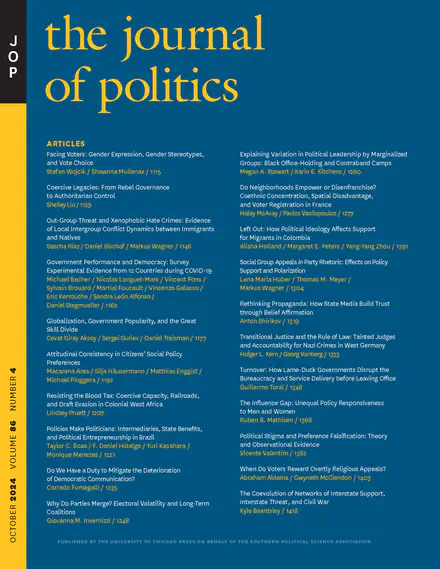Institutional Opposition, Regime Accountability, and International Conflict

Abstract
Can international organizations constrain a leader’s behavior during a military crisis? Existing studies have shown that joint membership in international organizations reduces the likelihood of dispute initiation; however, whether institutional opposition can prevent an ongoing conflict from escalating has yet to be investigated. We develop and test a theory of how domestic politics provides a mechanism through which international organizations can reverse the course of a military crisis. The argument leads to the hypothesis that more accountable regimes are less likely to escalate military crises when an international organization opposes their actions. We test the hypothesis with an analysis of territorial disputes from 1946 to 1995. We find that while neither institutional opposition nor the degree of regime accountability independently reduces the tendency for a country to escalate a conflict, the joint effect of the two does.